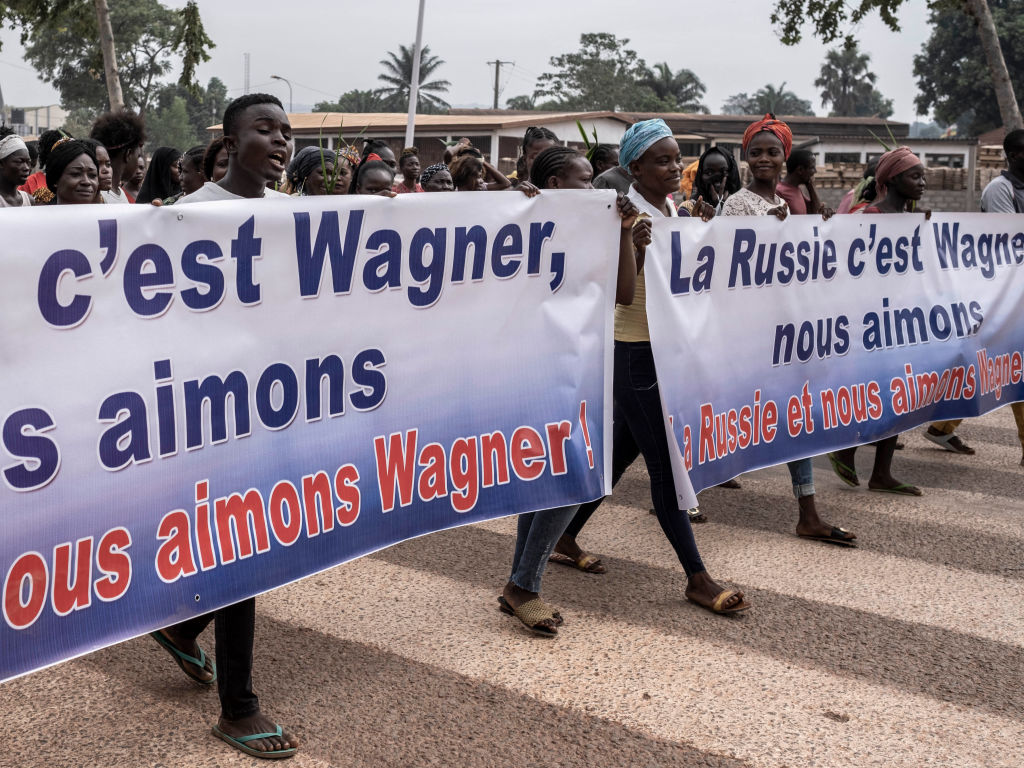ADF STAFF
In mid-2020, the Central African Republic’s Constitutional Court denied President Faustin-Archange Touadéra’s request to delay the 2020 elections because of the COVID-19 pandemic. Almost immediately afterward, claims began circulating online that the court had been bribed to act against the president.
The accusations came from an anonymous operator on WhatsApp known as “Eye on CAR” that is part of a network of commentators working under the umbrella group “One Africa One Success” that is made up of dozens of Russian-educated Africans who post pro-Russian messages online. Like “Eye on CAR,” most have Russian telephone numbers, according to research by The Daily Beast.
Conspiracy theories — many, like the CAR bribery claim, targeting France — and other material posted on “One Africa One Success” have found their way into Africa’s media mainstream, fueling mistrust and public outrage. The messages are sent to journalists through the Russian-owned email server Yandex.
“Eye of CAR has become a name many people want to trust,” Louis Kottoy, a freelance journalist in the CAR, told The Daily Beast. “People from all walks of life, from politicians to civil servants, have been sharing whatever is created on WhatsApp by this name, helping it gain popularity and portraying whoever is behind it as credible.”
Across the continent, people are being inundated by a flood of pro-Russian propaganda aimed at undermining international alliances, supporting pro-Russian authoritarian leaders and shaping public sentiment in favor of the often-brutal interventions by Wagner Group mercenaries.
Analysts at the Rand Corp. think tank describe Russia’s propaganda model in Africa as “a firehose of falsehoods.” In many cases, Wagner serves as the conduit for Russian propaganda.
Russia’s propaganda project takes many forms:
- In the CAR, the Russian embassy and the Wagner-affiliated Lobaye Invest mining company launched Radio Lengo Songo shortly after Wagner entered the country to broadcast pro-Russian news and commentary. Wagner has also sponsored beauty pageants and sponsored screenings to the pro-Russian film “Le Touriste.”
- In Mali, propaganda has focused on denigrating France and its eight-year effort to help the country fight an insurgency in the north. Russian propaganda created a story that French Soldiers had left a mass grave behind when they left the country. The claim was quickly debunked through satellite imagery showing Wagner forces manufacturing the scene.
- In Ghana and Nigeria, Russian troll farms have operated to pump propaganda into social media across the continent. The operations often spike in targeted countries just ahead of elections, pushing the pro-Russian candidate.
Pro-Russian bloggers and commentators, such as Adama Diabaté in Mali or Blaise Didacien Kossimatchi in the CAR, get amplified by Russian media and social media channels. Diabaté has claimed that Wagner mercenaries are supported “down to the last peasant in the last village.”
With 16 propaganda operations on the continent, Russia has become Africa’s leading creator of disinformation, according to a study by the Africa Center for Strategic Studies. The busiest propaganda operations are in Kenya, Libya, Mali, Mozambique, Nigeria, South African and Sudan.
“This strategy amplifies grievances and exploits divisions within a targeted society, fostering fragmentation and inaction — all while affording the perpetrators plausible deniability,” the report’s authors wrote.
In addition to those influence campaigns, Russian broadcaster RT is also busy establishing bureaus across Africa. To supplement its largest bureau in Nairobi, RT recently opened an office in Algeria and is now looking to hire up to 300 correspondents across the continent. RT is already at work on a small scale along the Gulf of Guinea while Russia’s Sputnik media outlet is operating in Burkina Faso.
“The Kremlin views Africa as an increasingly important power-projection theatre,” analyst Samuel Ramani, author of a book on Russia’s involvement in Africa, told the Financial Times. “They work with existing autocrats and create an authoritarian stability model which they equate with anti-neocolonialism.”

